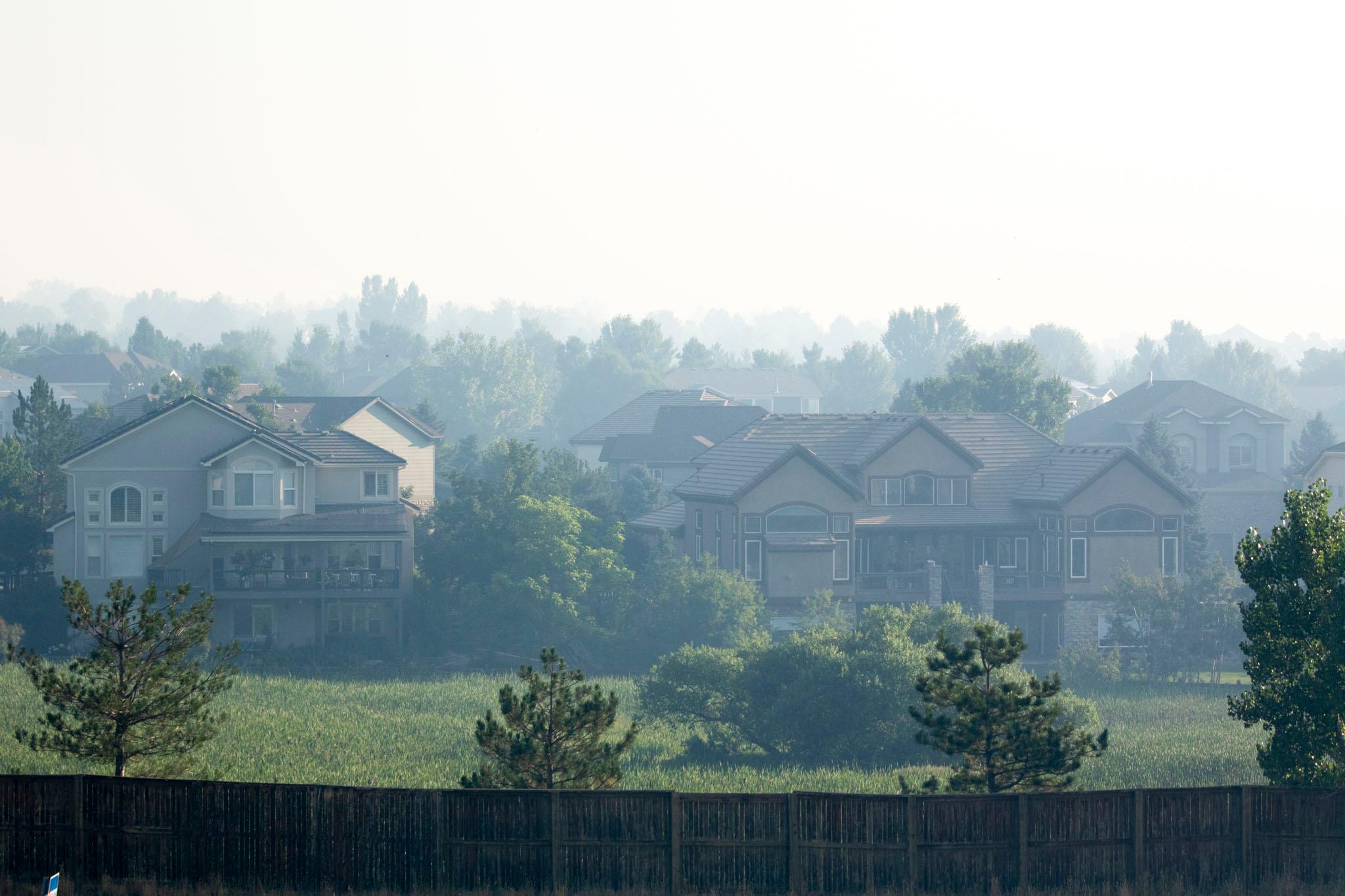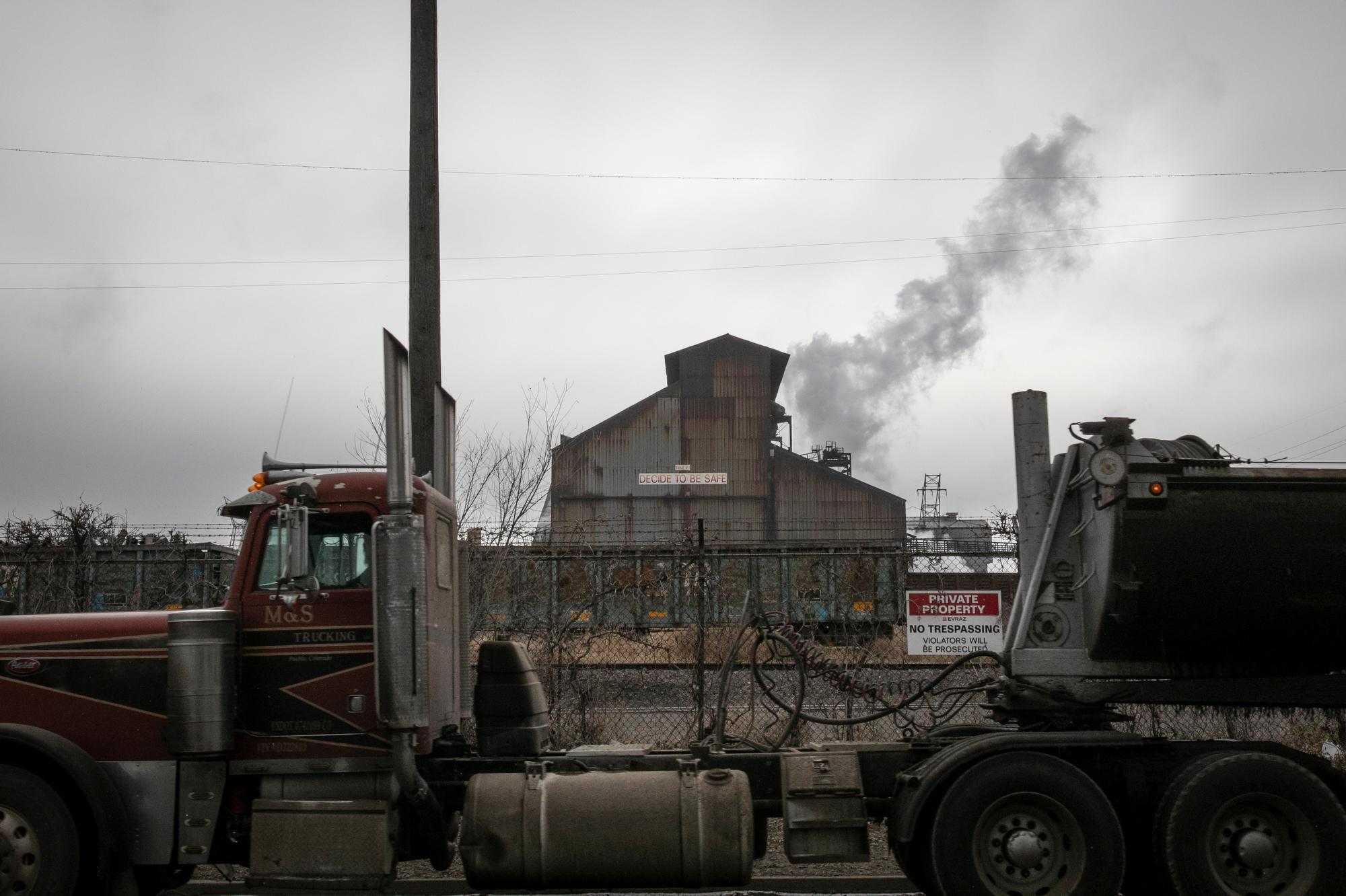
As climate change starts baking Colorado more, it’s set to lead to droughts, heat waves and more, stronger and longer wildfires. That’s going to mean smoke in the skies, polluting the air.
Increasingly researchers are raising concerns about what that bad air does to your health. A new CU Boulder study adds to the list of likely problems. It found exposure to air pollution including wildfire smoke increases symptoms of mental illness, things like depression and anxiety, in young people.
“It wasn't that annual average exposure that seemed to be driving these effects with mental health symptoms. It was these really extreme, the number of extreme days that seemed to be most important,” said first author Harry Smolker, a research scientist with CU’s Institute of Cognitive Science.
“With the incidences of wildfires increasing as well as the severity of the wildfires, we're seeing more and more of these extreme days, which may have a very small effect on annual average, but can have a pretty big effect on mental health,” said Smolker in an interview with CPR.
Researchers analyzed brain development data from 10,000 people ages 9 to 11 in one year. The more days the children were exposed to unsafe levels of fine particulate matter, pollution defined as above levels the federal Environmental Protection Agency calls unsafe, the more likely they were to experience depression, anxiety and other symptoms up to a year later.
The study, one of the first to explore the behavioral impact of particulate exposure on adolescents, according to CU Boulder, was published last month in the journal Environmental Health Perspectives.
A lot of research in recent years has focused on wildfire smoke driving health effects like lung and breathing problems and lower birth weight babies.
Now researchers are digging in to learn more about the possible mental health problems wildfire smoke can cause to the brain. More and more they’re finding the risks are there.
“The message is a little grim,” said Smolker. “These really extreme wildfires, the air pollution from these wildfires, are essentially going all over the world. You can have really high levels of exposure in the East Coast from wildfires that are occurring all the way in California.”
Smoke as pollution
The burning of massive numbers of trees pours a toxic stew of nasty things into the air we breathe.
“Wildfires are a growing public health risk due to the enormous amount of smoke related pollution produced, including carbon monoxide, nitrous oxide, volatile organic compounds and particulate matter less than 2.5 μm in diameter (PM2.5), which are mixtures of solid and liquid particles that are suspended in the air,” according to a 2022 study in BMC Public Health.
The CU study found 32 percent of participants were exposed to at least a day of particular matter of unsafe exposure. One participant experienced 173 days, nearly a half year, of breathing in unsafe amounts — sometimes at levels five times the limit set by the EPA.
The research team analyzed data from 10,000 pre-teens, at 21 sites around the country, participating in an ongoing project called the Adolescent Brain Cognitive Development Study, according to a CU Boulder press release.
They examined participant addresses and air quality data to figure out how many days in 2016 youth were exposed to fine particulate matter, called PM2.5, levels above 35 micrograms per cubic meter. That’s the level the EPA has found unsafe.
The research studied three different patterns of exposure: the annual average of fine particulate air pollution at their home address, the maximum level of exposure during that first year of the study, as well as the number of days in which exposure exceeded the EPA guidelines for safe air.
Impact of the mind or body?
Is the impact wildfire smoking has on mental health psychological or physiological?
Likely a little bit of both, Smolker said. There’s like a psychological effect that poor air quality days have on young people, spending more time inside and feeling stressed.
Smolker said evidence suggests fine particles from pollution can enter the lungs, then the bloodstream and the brain and “basically cause a neuroinflammatory response in the brain, which can cause essentially psychiatric problems.”
Smolker says it's important to stress that the research is “correlational, not causal, and we know that exposure to air pollution is associated with a wide range of other potentially detrimental factors.”
For example, researchers have found people of lower income are most often associated with higher levels of exposure. Neighborhoods that may have a lot of other issues going on often have higher levels of exposure as well. “So it's unclear exactly if this is specific to fine particulate air pollution or maybe reflecting some other aspect of participants' environments,” he said.








